Besides having a delicious taste, typical Chinese food is also believed to have the meaning of luck. Check out 8 typical Chinese foods and their meanings below!
Typical Chinese Menu – Chinese New Year Celebration, synonymous with a lively atmosphere, all red, and also happy. Families gather to offer each other their best wishes and prayers for a happy and hopeful opening of the new year.
For children, the Chinese New Year celebration can also be even happier with the distribution of angpao that is usually given by senior family members. Of course, senior family members are no less happy by chatting with each other and enjoying Chinese specialties.
When celebrating Chinese New Year, we often see many typical Chinese New Year celebrations that only appear once a year. For those who don’t celebrate Chinese New Year, you definitely don’t know that these foods also have their own meaning that is believed by the Chinese, you know.
For that, consider the following typical menus for Chinese New Year celebrations that Chinese people believe can bring good luck to those who eat them:
8 Typical Chinese Menu
1. Longevity Noodles ( Siu Mie)
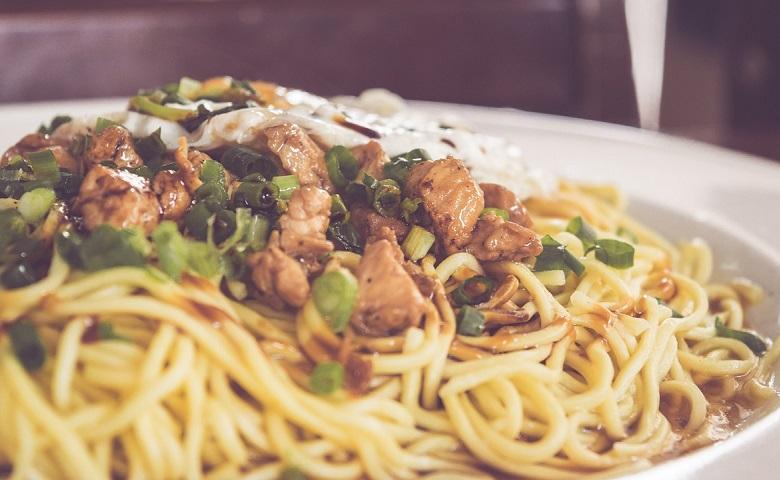
In celebration of Chinese New Year, serving fried noodles or also known as siu noodles is a must. One of the reasons it is called long noodles, is that they are made as long as possible and should not be broken or cut when eating them.
However, for Chinese people, siu noodles also have a special meaning and meaning, namely as a symbol of longevity, happiness, as well as abundant sustenance. Therefore, siu noodles are also known as Longevity Noodles.
This Chinese New Year menu is usually served with mustard greens, cabbage, mushrooms, shrimp, clams and squid. But there are also those who add meatballs, chicken slices, to sausages as a complement.
2. Milkfish
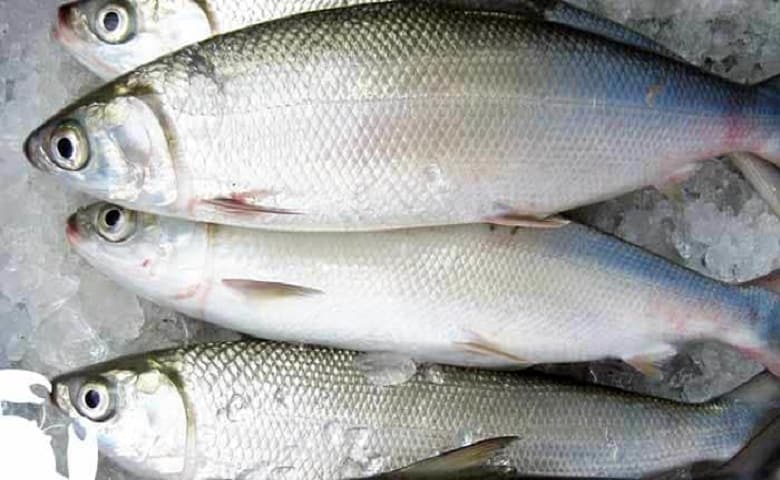
In Chinese tradition, eating milkfish on Chinese New Year is believed to bring abundant sustenance. This is because the word fish in Mandarin has the same sound as rezeki.
Milkfish itself is a popular fish choice to serve when celebrating Chinese New Year in Indonesia. Milkfish will be served as a whole because it is believed to be able to provide sustained sustenance and luck and is also a symbol of repelling reinforcements in Chinese culture.
Usually, milkfish will be cooked by presto or roasting. You can also find various typical Chinese menu recipes using milkfish and you can cook it yourself.
3. Jiaozi
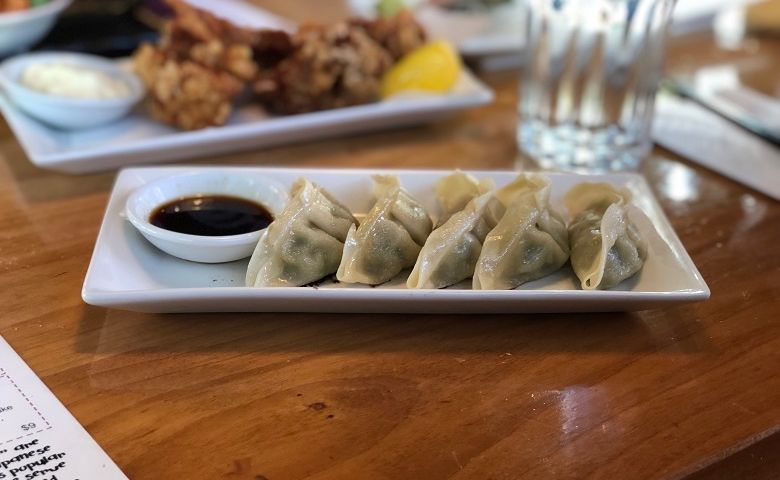
If you like to eat dim sum, the Kuotie menu is definitely familiar. Kuotie, or jiaozi, is also one of the typical Chinese foods that must be consumed when celebrating the New Year with family.
Chinese people believe that this menu has a meaning as a symbol of prosperity and prosperity. This is because the shape of the jiaozi resembles an ancient form of money in the past in mainland China.
If you don’t have a special dimsum steamer, you can also make this one typical Chinese menu using an ordinary steaming pan that has been covered with banana leaves or aluminum foil.
4. Eight Treasure Soup
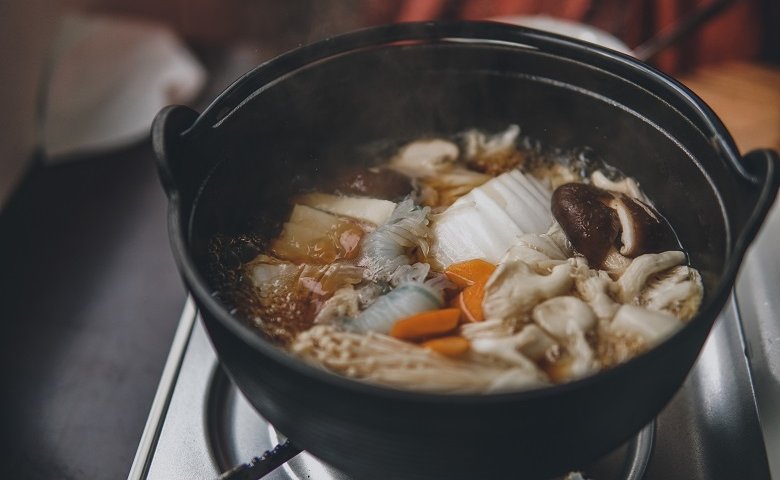
Eight treasure soup or better known as the eight forms of soup, is one of the Chinese specialties that must be served. The name of this soup is taken from the eight basic ingredients it uses, namely terpang, stove mushroom, fish, shrimp, fish belly, dried clams, abalone, black mushroom, ginko beans, and lotus seeds.
The eight main elements in a bowl of this soup, are a symbol of good luck. In addition, Chinese citizens also believe that consuming it can become a symbol as a symbol of prosperity and hope that business will thrive in the new year.
5. Yusheng
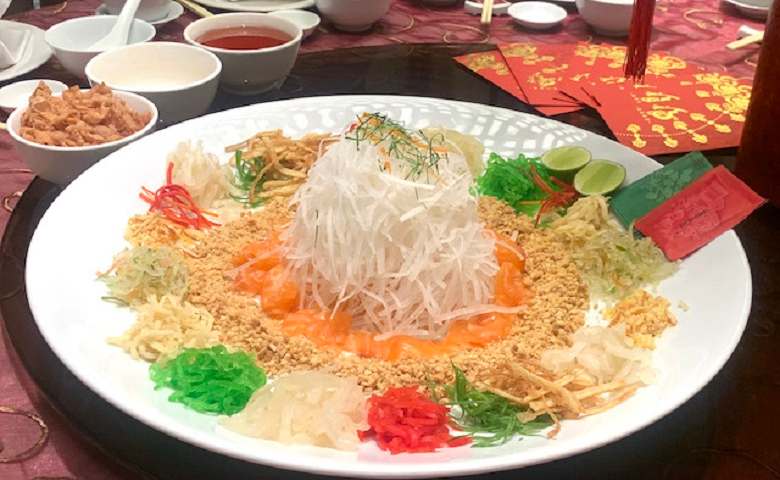
This one typical Chinese food, consists of finely sliced vegetables, such as carrots and radishes, with a mixture of raw tuna or salmon chunks that have been soaked and mixed in sesame oil.
Not only that, this Chinese New Year menu also has a sauce which is a mixture of cooking oil with sesame oil plus plum sauce, granulated sugar, and cinnamon powder.
In consuming it, Chinese people will carry out the Lo Hei tradition , where yusheng is stirred with other family members, then raised high. This symbolizes the wishes that will come true and better luck in the new year.
6. Fried Spring Rolls
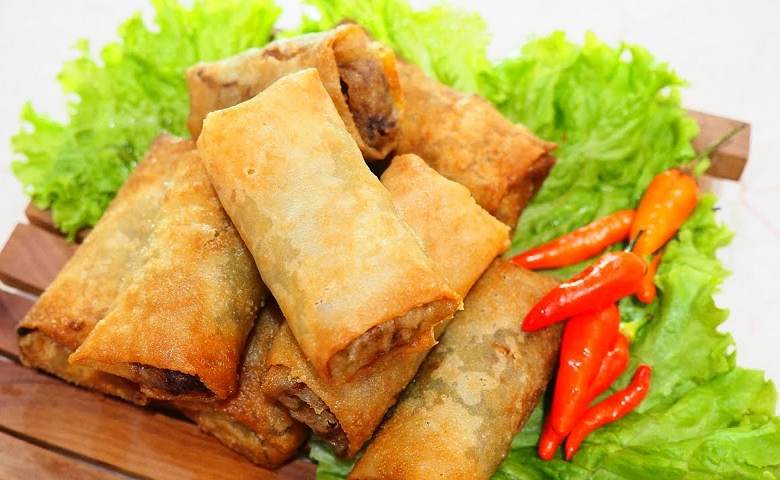
Fried spring rolls, cooked until cooked, can cause a golden color on the skin. Usually, this fried spring roll is easy to find at fried places, but for Chinese citizens this Chinese special dish has another meaning.
With its oval shape and golden color after ripe, making Chinese people symbolize this typical Chinese food as a hope for prosperity and glory.
This typical Chinese food menu usually comes with a variety of filling options, such as vegetables, meat, to sweet stuffing. By providing and consuming them, Chinese people wish a lot of luck in terms of prices in the new year.
7. Roast Duck
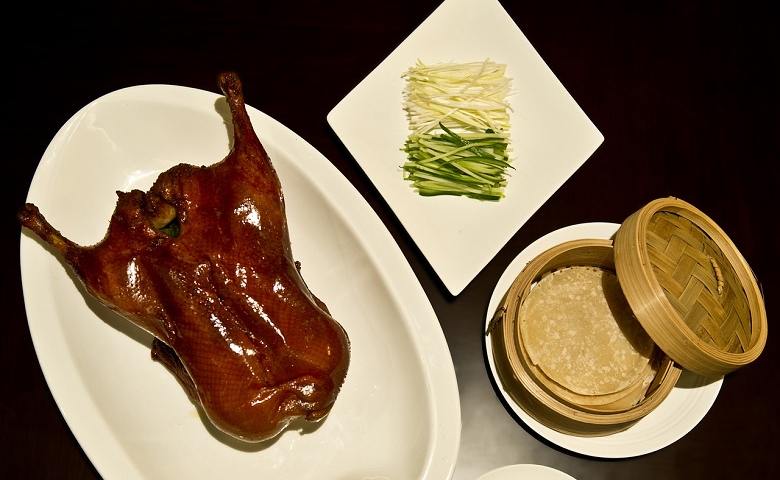
In Chinese New Year celebrations, roast duck is also one of the Chinese specialties that should not be missed. Duck that is processed by roasting this must be served whole without being cut into pieces.
For Chinese citizens, serving and consuming roasted duck as a whole has the meaning of the hope that the family will stay together, remain intact and happy and is a symbol that means loyalty and obedience.
Usually, the duck used is a type of Peking duck that has been marinated for 4 days. After going through the marination stage, the duck is ready to be roasted and served when celebrating Chinese New Year with family.
8. Roast Chicken
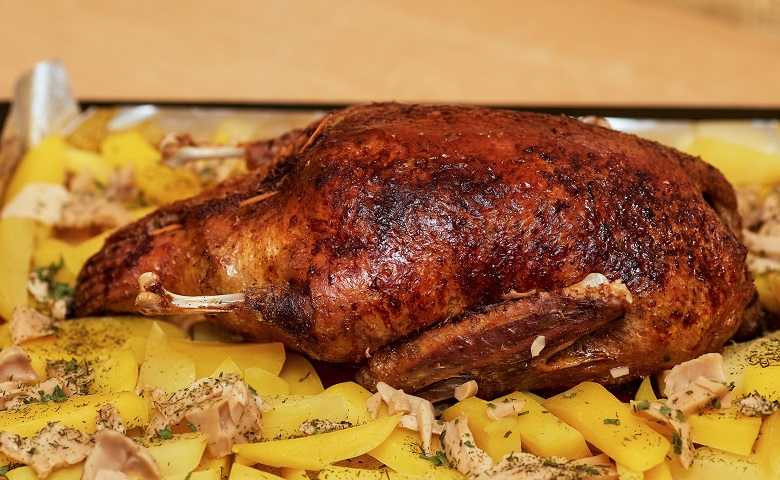
Apart from ducks, the use of chicken as a substitute is also one of the typical Chinese food menus that must be served. Besides being easier to find, using chicken meat is also common for some people.
Similar to roast duck, a serving of roasted chicken must also be served whole without being cut into pieces. This also illustrates the belief of Chinese people who interpret this one dish as a symbol of togetherness.
So, those are the 8 typical Chinese food menus that Chinese people believe have the meaning of luck when served and consumed! Besides having a good taste, the typical Chinese food above is also a must to be served when celebrating Chinese New Year with family.
For Chinese citizens, Chinese New Year is certainly a special day to be greeted warmly and full of hope. Chinese New Year celebrations can also make family ties closer by gathering and praying for each other.

